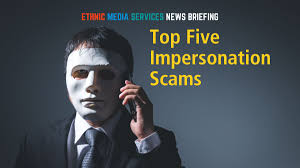Vidya Sethuraman
India Post News Service
The Federal Trade Commission (FTC) received 2.6 million consumer complaints about online, over-the-phone, and in-person scams. Many people think scams mostly affect older adults, however, anyone can be scammed.
Reports suggest that many scams are harming younger people more than older adults. 1 in 4 Americans reported losing money to some form of scam in 2023. According to the FTC, the median loss to FTC impersonators has increased from $3,000 in 2019 to $7,000 in 2024. Scammers gain the trust of victims by posing as government officials, Social Security Administration employees, or representatives of well-known companies such as Amazon and Microsoft, and quickly ask victims to provide sensitive information or transfer funds. At Ethnic Media Services briefing on Sep 20, experts from the FTC Bureau of Consumer Protection shared tips on how to avoid some of the most devious scams and what to do if you or someone you care about becomes ensnared.
Emma Fletcher, a consumer rights expert at the FTC, said, “these scammers use panic and a sense of urgency to force victims to take quick action, even going against the norm to transfer money or provide personal information. She added, “Especially in cases where the name of a well-known company is used, the victim often thinks that he is communicating with a legitimate company or government department, and ends up falling into a trap.” She pointed out that scammers are constantly evolving their methods, and scam messages are often disguised as legitimate-looking email or text message notifications, such as false shipment delays, account security issues or unpaid fines. A growing number of cases show victims being asked to pay via unusual methods, such as cryptocurrency transfers or gift cards.
Kati Daffan, Assistant Director, Division of Marketing Practices, Federal Trade Commission, Washington, District of Columbia said that the new regulations clearly stipulate that more severe penalties will be adopted for those who impersonate governments and businesses to commit fraud and provide more legal assistance to victims. The FTC also specifically pointed out that fraud reporting data only reflects the tip of the iceberg, and many victims do not take the initiative to report out of shame or self-blame.
To help the public respond to this growing threat, the FTC has proposed precautionary measures that begin with identity verification and that any requests for sensitive information or funds transfers should be verified through official channels. Secondly, avoid hasty decisions. Never share the verification codes sent to you by your bank – especially not to someone claiming to be from your bank. No caller will ever ask for the verification code, especially not someone from your bank’s fraud department.
Scammers often try to create a sense of urgency and force victims to make quick financial decisions. If you encounter any possible fraud, you should immediately report it to the FTC or local law enforcement agency. Report FTC impersonation scams at ReportFraud.ftc.gov (English) or ReporteFraude.ftc.gov (Spanish).
Also Read: Salman Khan’s team issues advisory on US concert scam







